SEO stands for Search Engine Optimisation.
Its genesis was the early days of search.
As the story goes, the manager of 70’s band Jefferson Airplane was upset the band was on page 4 rather than position 1 for its name. So he set about fixing that. And SEO was born.
My definition of SEO is:
“to improve your website & the authority of your brand in order to rank your website higher for terms that matter to you & your business. The result is more traffic, more leads and more sales.”
If you wanted more traffic, more lead or more sales you’d be mad to ignore SEO, right?
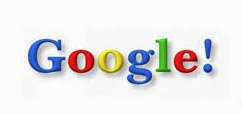
But first I want to take you back in time to the noughties. Yes the 2000s.
A time when my wife Ruth and I had just had two little babies and our life was turned on its head.
No longer working as a teacher, Ruth turned her hand to creating an ebook. A meal planning ebook. We were needing to make a few extra dollars so why not give it a try?
The research was done. The book drafted, edited and written. The cover designed. The website designed. The download and ebook ready.

Except no one knew about it. On the traffic front; crickets.
How are we going to get people to buy this $19.95 masterpiece if no one knows about it?
That was when I discovered SEO.
If you think SEO was obscure today, you should’ve seen it in 2007! It was the nichiest of the niche!
But there were a few blogs. A few mailing lists. A few voices that helped us piece together how SEO worked. And as I learnt and applied this information something magical happened. The traffic began to appear!
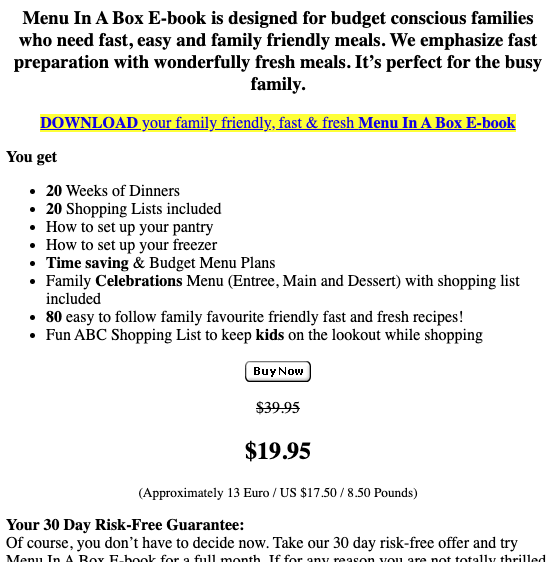
It trickled in at first. And then grew. And grew.
And as it grew, so did the sales of that little $19.95 meal planning ebook!
I turned to Ruth and said, “You know what? This SEO really works!”
It did then and still does today.
Of course, the landscape has changed A LOT since 2007. But the fundamentals remain the same.
People go to Google for answers. For solutions. For products. For help.
If you sell something that others will look for? You would be mad NOT to work at getting your name before those searching.
SEO takes time. SEO requires investment financially. SEO needs to be tailored to your website’s requirements. But there are plenty of good reasons why you need SEO:
1. SEARCH IS MASSIVE
Google handles 2 trillion searches each year. That’s 63,000 searches per second of every day.
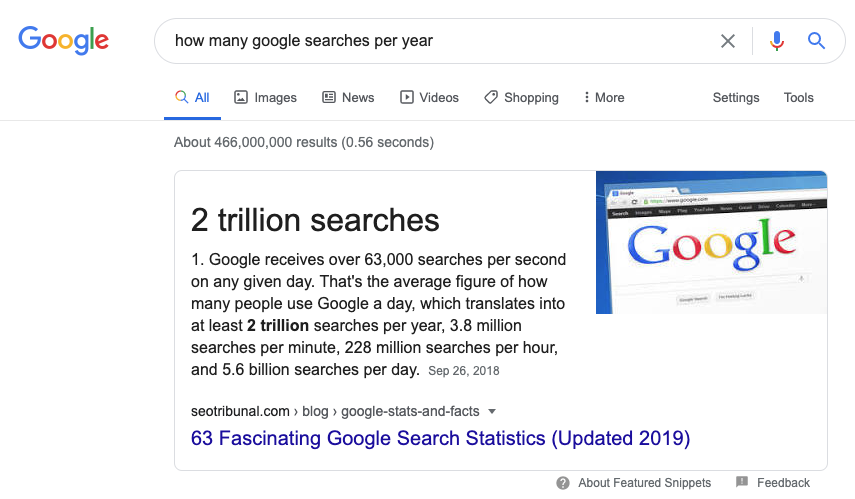
Its mind boggling stuff. Google remains the star of search but these figures don’t include competitors like Bing and Duck Duck Go.
Why are there even competitors around? Because search is a huge and lucrative market. And it isn’t going away anytime soon.
SEO gets you a profitable piece of the search pie.
2. SEARCH IS DIRECT ACTION
What sort of person searches for something?
Someone who WANTS something.

Search gets you traffic that is hot, qualified, ready-to-buy.
If you know what you are doing.
Find the right keywords, the right copy, and rank for the right terms and you will convert like crazy. Certainly way more than a generic Facebook ad campaign.
3. WITH SEARCH I CAN MARKET TO THE ENTIRE FUNNEL
In marketing there is a concept known as a marketing funnel. There are different names for this but they all follow a similar them. Let’s use one of the more common funnels, the AIDA funnel
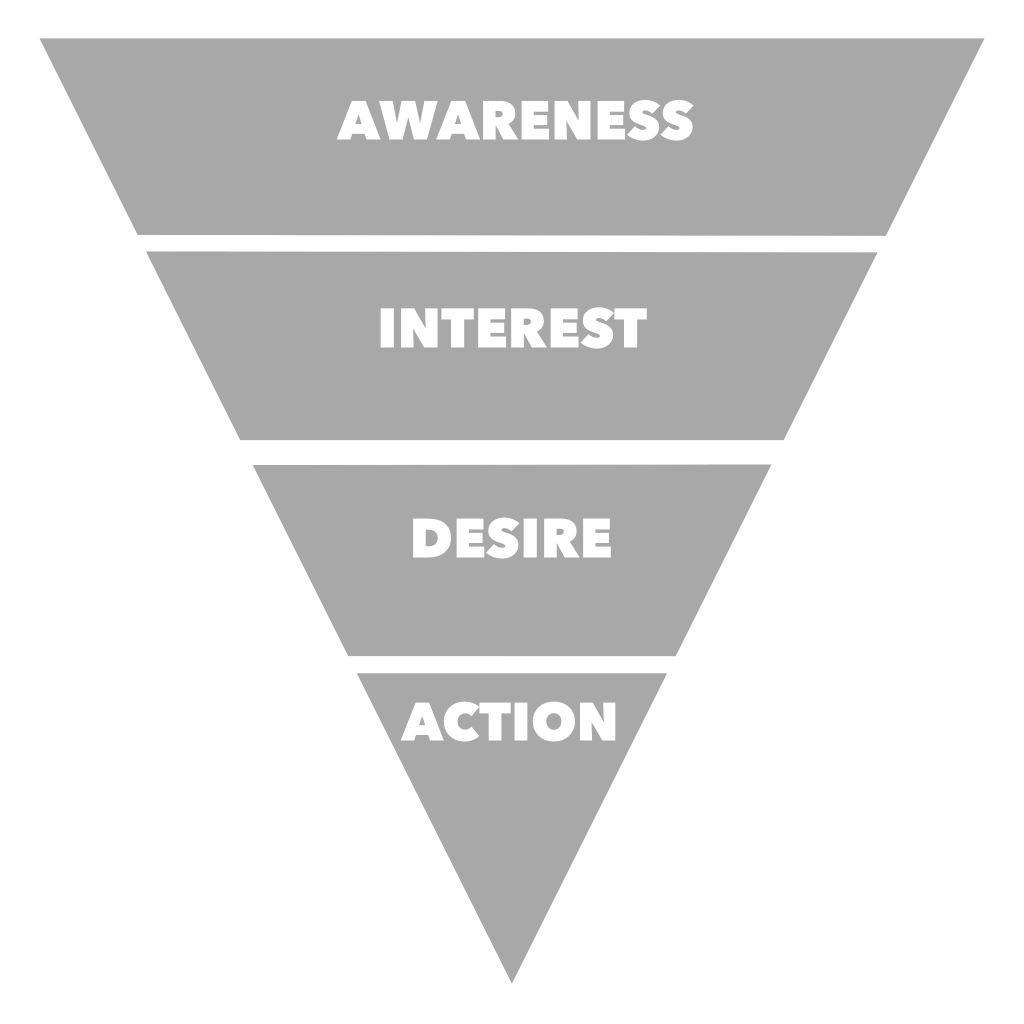
AIDA stands for the Awareness, Interest, Desire and Action. And each step in the funnel represents the steps someone takes to make a buying decision.
For example I want to buy a new front door to my house.

First I will browse front doors. I will look at the different styles, colours and functionality. This AWARENESS.
Next I will develop an INTEREST and begin to research. Costs, manufacturers, suppliers and fitters. Timeframes. Pros and Cons.
Now I developed a DESIRE for a new door. I know what I want, how much it will cost (roughly) and how it will take to fit. I am now ready for ACTION; “let’s get that new door!”
Did you know with SEO you can hit it all four steps in this funnel? You can.
SEO is highly adaptable. You can cover the top of the funnel with informational blogs, how-to’s, FAQs and optimised images. You can cover the bottom of the funnel with sales pages, described pain points & calls to action.
4. ORGANIC SEARCH IS STILL KING OF SEARCH
Don’t forget search includes paid (ads) and organic (results from SEO).
So what’s more popular? Organic search or paid ads?
It’s not even close…
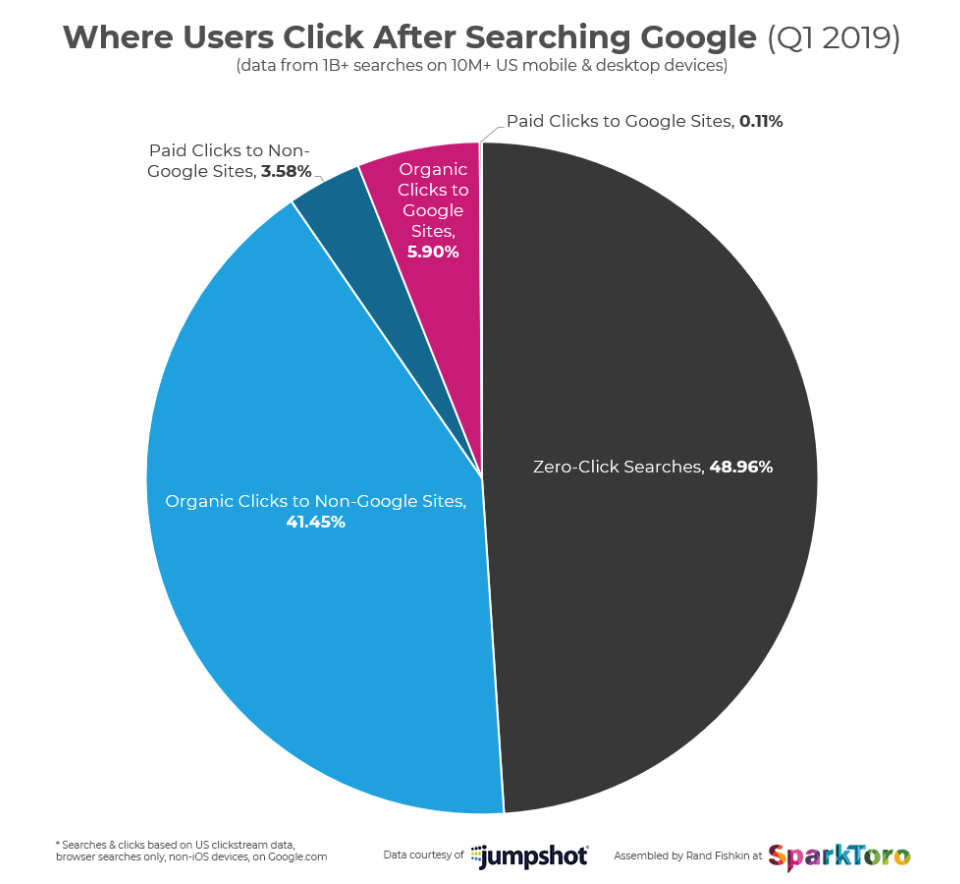
According to Jumpshot’s 2019 report 80+% of clicks go towards to organic listings. Less than 20% to ads.
There’s a place for ads. But you are missing out on a massive amount of the action if you ignore SEO.
5. YOU CAN LEARN SEO
SEO has a bad name in some parts.
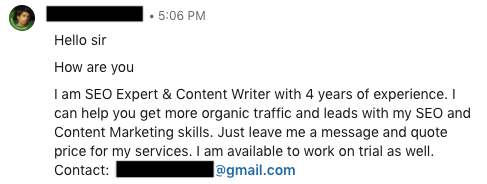
LinkedIn spammers. Unsolicited emails. Cold calls.
Not all those people are bad. Maybe they just believe in SEO.
I do think it is a bit sad that this reputation SEO has overshadowed the fact SEO is VERY effective and VERY learnable.
Easy for you to say! I hear you mutter.
I admit I learnt and failed more than I care to admit. Especially early on.
But with someone who can guide you through the pitfalls, keep you moving in the right direction and focusing on the important stuff you can benefit from SEO too.
SO if you are looking for where to start (*clears throat*) let me introduce you to my own resources.
Get your SEO Roadmap free at 1hrseo.com and find out about my introductory SEO course. You’ll be glad you did.
PS – the SEO Roadmap is adapted from the very first SEO framework I ever saw. Seeing how everything fit together helped me “get” SEO and totally accelerated my learning from that point. It will definitely help you too!
